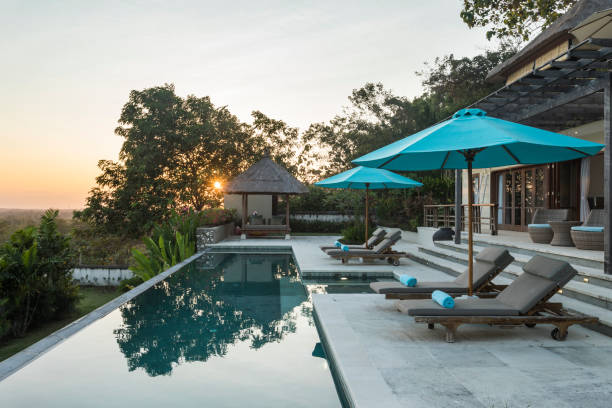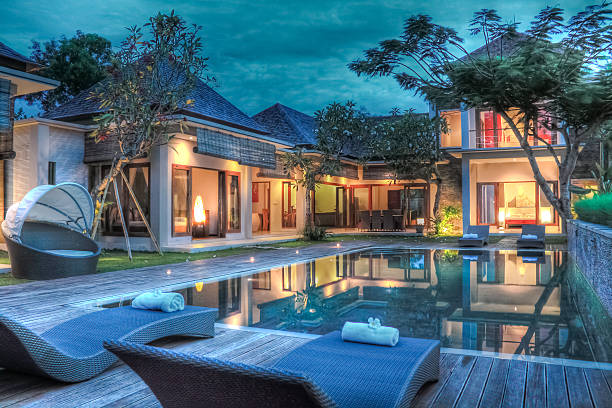Land Zones in Bali Explained: What Every Property Buyer Needs to Know



If you’re planning to buy or lease land in Bali, one of the most important aspects to understand before proceeding is land zoning. Zoning laws in Bali are regulated under the RTRW (Rencana Tata Ruang Wilayah) or Spatial Planning Regulations, and they define what you can and cannot legally build or operate on any given plot of land.
At The Bali Lawyer, we specialize in helping property investors, developers, and residents navigate the complex zoning system in Bali to ensure their plans are legally protected and fully compliant with Indonesian regulations. In this comprehensive guide, we explain everything you need to know about Bali’s land zoning system, how to identify zones, and the legal implications of each classification.
Why Is Zoning So Important in Bali?
Zoning is more than just a planning tool. It is a legal framework that governs land use, issued by the local government. If you purchase or lease land in a zone that restricts your intended use, you risk:
Building permit denials
Legal action from authorities
Demolition orders
Loss of investment
Understanding land zoning is not optional—it’s essential. Many foreigners and even local investors have made costly mistakes due to poor zoning checks. At The Bali Lawyer, we make sure your property decisions are based on verified, legal information.
Types of Land Zones in Bali
The Bali government uses a color-coded zoning system to manage land use across the island. Each color defines a permitted type of use. Below is an explanation of the most common zones you’ll encounter:
1. Yellow Zone – Residential Zone
The Yellow Zone is designated for residential purposes. This is the safest and most popular zone for building homes or villas. The land can be used for:
Private residences
Villas for personal use
Home offices
Limited homestays (with proper permits)
It is easier to obtain building permits (PBG) and legal approvals for construction on Yellow Zone land.
2. Green Zone – Agricultural Protection
The Green Zone is restricted to agricultural use only. You are not allowed to build permanent residential or commercial structures on this land. This zone includes rice fields, farming land, and areas protected for food security and environmental conservation.
Buying Green Zone land with the intent to build is a legal risk. Enforcement of building restrictions is becoming stricter across Bali.
3. Red Zone – Commercial and Industrial
Red Zones are assigned for commercial and industrial development. These areas are ideal for:
Hotels
Restaurants
Shops
Offices
Warehouses
Other business establishments
Red Zones require a different set of permits, including business licenses and environmental approvals.
4. Blue Zone – Public Facilities
Blue Zones are allocated for public infrastructure such as:
Schools
Government offices
Religious buildings
Community centers
Transportation facilities
These zones are controlled by government institutions, and private ownership or use is limited or restricted.
5. Purple Zone – Special Development Areas
This zone is typically for special projects like tourist destinations, large resorts, or mixed-use developments. Permits in Purple Zones are complex and require multi-agency approvals.
How to Check Land Zoning in Bali
You cannot confirm zoning by simply looking at a land certificate. To check zoning status legally and accurately, follow these steps:
Request Zoning Information Letter (Keterangan Rencana Kota – KRK):
This document is issued by the local Spatial Planning Office and confirms the official zoning classification of a specific plot.Access the RTRW Map:
The RTRW zoning map outlines the current spatial plan and is publicly accessible through the government’s planning office.Hire a Legal Service:
At The Bali Lawyer, we conduct zoning verification, land due diligence, and legal checks before you commit to any deal.
Land Use Rights in Bali
Foreigners are not allowed to directly own freehold land (Hak Milik) in Indonesia. However, you can still legally hold land through the following structures:
Hak Pakai (Right to Use): Grants the right to use residential property, typically for 30 years, renewable.
Hak Sewa (Leasehold): Long-term lease contracts (commonly 25–30 years), extendable, for residential or business use.
PT PMA (Foreign-Owned Company): This entity allows foreign investors to operate a business and own land with Hak Guna Bangunan (Right to Build).
Zoning compliance must still be followed under all these arrangements. For example, a PT PMA must operate in a commercial (Red Zone) area if it conducts business activities.
Building Permits Based on Zoning
After identifying the correct zone, you must secure the appropriate permits:
PBG (Building Approval Permit): This permit replaced the old IMB system and is required for any construction.
SLF (Feasibility Certificate): Issued once construction is completed to certify building safety and compliance.
Environmental Permits: Required for developments that affect land use or surrounding communities.
At The Bali Lawyer, we handle every step of this process, from zoning confirmation to full permit application and legal compliance.
Common Mistakes in Zoning
Here are some of the most frequent zoning mistakes we help clients avoid:
1. Buying in the Green Zone Expecting to Build
Even if the land is cheaper, building on Green Zone land is illegal and can lead to forced demolition or permit refusal.
2. Assuming You Can Rezone Land
Changing the zoning classification of land is extremely difficult and rarely successful for individuals.
3. Trusting Verbal Claims from Sellers or Agents
Always verify zoning with official documents. Do not rely solely on what an agent or seller tells you.
4. Not Checking Zoning Updates
Zoning maps are updated periodically. What may be Yellow Zone today might change in future revisions. Always request the latest information.
Zoning Impacts on Property Investment
Zoning directly affects:
Value of the land
Legal use of the property
Future resale potential
Rental and income opportunities
Permit processing and approvals
If your investment plan involves developing a villa for Airbnb, for example, you must ensure the land is in a zone that permits such use and that your structure meets all legal requirements.
How The Bali Lawyer Can Help
We offer comprehensive legal services for land and property matters, including:
Zoning verification and analysis
Property due diligence
Drafting and reviewing land lease agreements
Setting up PT PMA companies
Assistance with permits: PBG, KRK, SLF
Legal representation in Bali
Our team understands both the local regulations and the needs of foreign investors. We simplify complex legal processes and protect your investment every step of the way.
Areas in Bali With Mixed Zoning
Here are examples of zones in popular regions:
Canggu & Umalas: Mostly Yellow and Red Zones, suitable for residential and commercial use.
Ubud: Mixed Yellow and Green Zones—villas are possible in some areas.
Sanur: Yellow Zones are common and favorable for long-term residential use.
Bukit (Uluwatu, Pecatu): Expanding residential and tourism areas—check carefully as Green Zones are also common.
Let us assess the zoning of any land you are considering before you make a decision.
Zoning in Bali is not just a bureaucratic issue—it’s a legal framework that shapes what you can do with your property. Whether you plan to build a home, open a business, or invest in a villa rental, zoning regulations will define the limits and possibilities of your land.
By working with professionals who understand the system and can guide you through every step, you avoid costly mistakes and safeguard your future investment.
